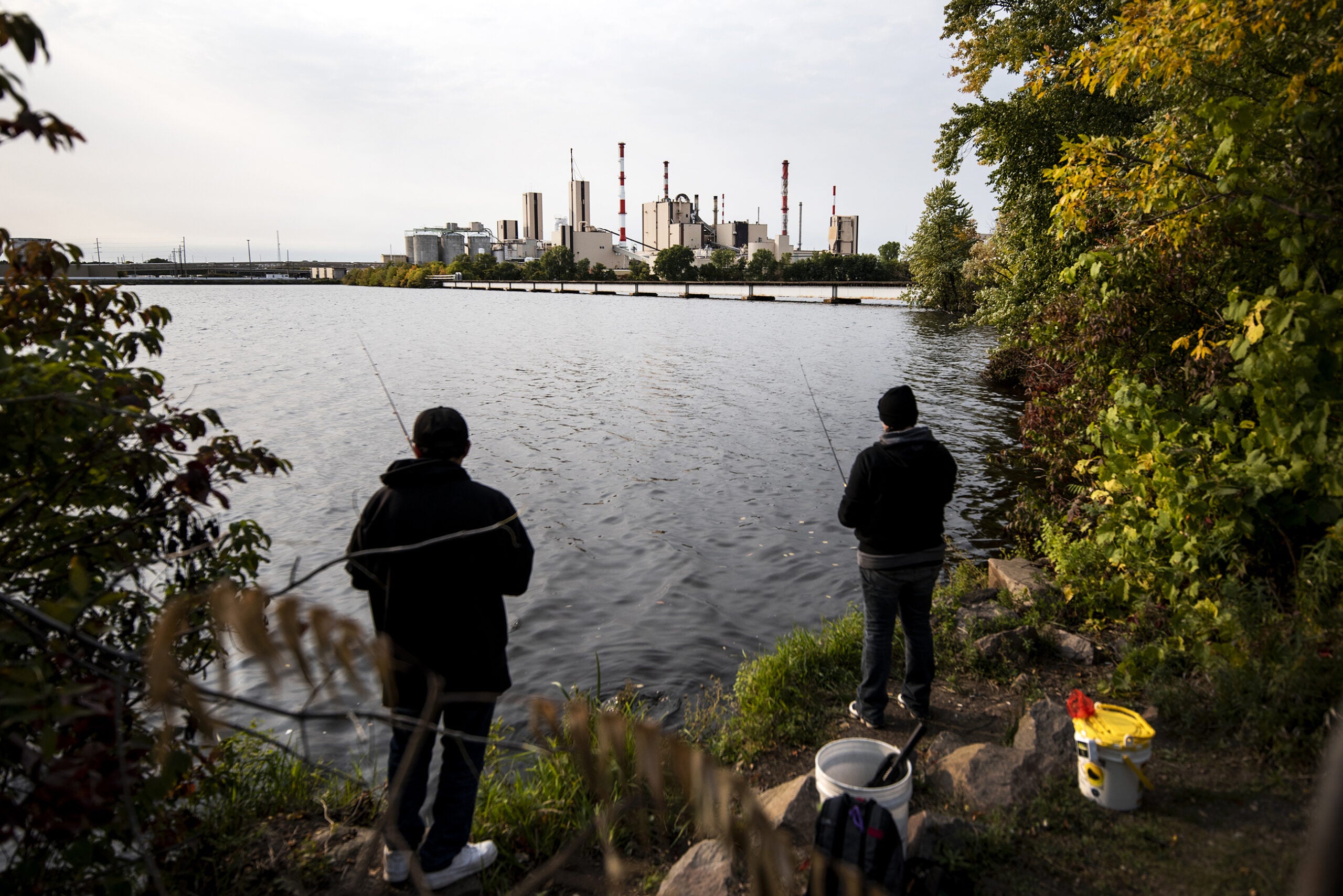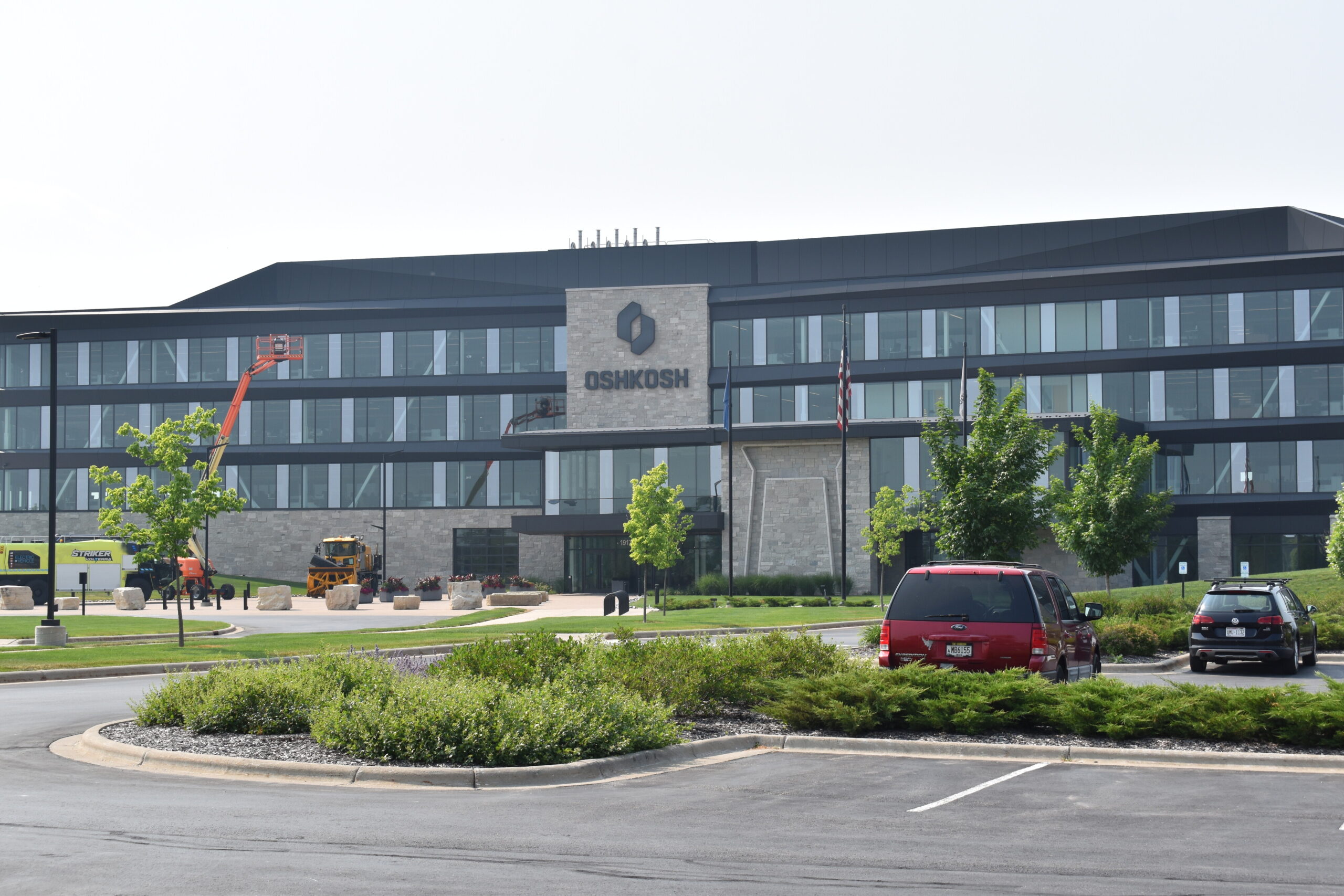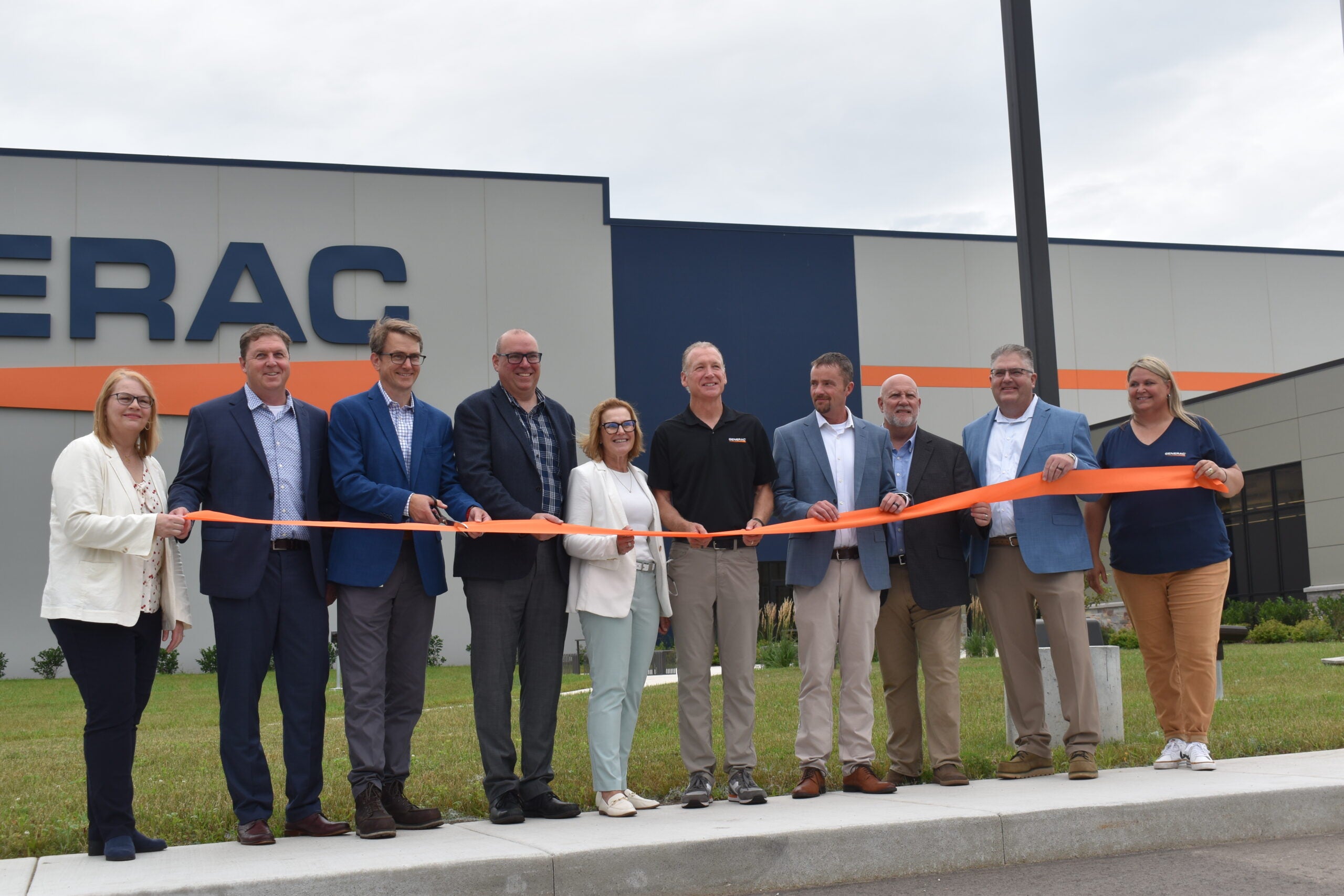At 6:39 a.m. on June 9, Brian King got the email telling him his job at the Verso paper mill — the one he hoped would take him to retirement — was going away in less than two months.
King, 54, has now been laid off from four different companies that have closed their doors permanently, mostly in the paper industry. Job hunting is not new for him. But it’s not the way things were supposed to go. He knew paper mill jobs were in decline when he took a shift-work job at the Verso mill in Wisconsin Rapids in May 2018, but he figured the mill had at least 10 more years of life in it.
News with a little more humanity
WPR’s “Wisconsin Today” newsletter keeps you connected to the state you love without feeling overwhelmed. No paywall. No agenda. No corporate filter.
“I decided to go back into it because it was local, and I figured it was pretty stable,” he said. “At the time, they were making decent money. I thought, ‘Well, let’s go finish my career.’”
King is now among 900 other Verso workers who were laid off from the plant after the company announced the shutdown of the facility in June. Those workers are confronting an uncertain job market and facing hard decisions: whether to uproot their families or take a job with a longer commute; whether to accept a lower-paying job somewhere or wait for an opening that offers them a comparable salary.
Since June, WPR interviewed 20 people — current and former employees, local leaders and industry experts — for this story about the issues facing the mill and its workers.
The mill was the largest employer in the city of 18,000 people. It also represented an industry that has been central to Wisconsin Rapids’ identity for more than a century.
For decades, the Wisconsin Rapids’ mill’s specialty was glossy magazine paper. When the COVID-19 pandemic hit, what had been a clear but relatively gradual decline in buyers for that product turned into a sudden, precipitous drop.
Now, there are no more clouds of water-vapor rising from the mill’s smokestacks, and the once-familiar sulfur stench that is a byproduct of paper-making — what Wisconsin Rapids residents call the “smell of money” — no longer wafts over the city.
At the end of July, Verso took the mill idle and laid off most of its workers. A skeleton crew remains, as well as some workers who stayed on to package up materials or do maintenance on multi-million-dollar equipment. But in most cases, those workers don’t know how long their jobs will last.
“I think it’s actually harder than getting up and working shift work,” King said of job-hunting. “You put resumes out there, you don’t hear anything back. You have companies that hire somebody and they don’t let you know they hired somebody. It’s always a roller coaster.”
Along with the stresses of looking for a job, there’s another factor Verso workers have to consider: whether or not they should hold out hope that a buyer for the Wisconsin Rapids mill might still emerge and call them back to work.
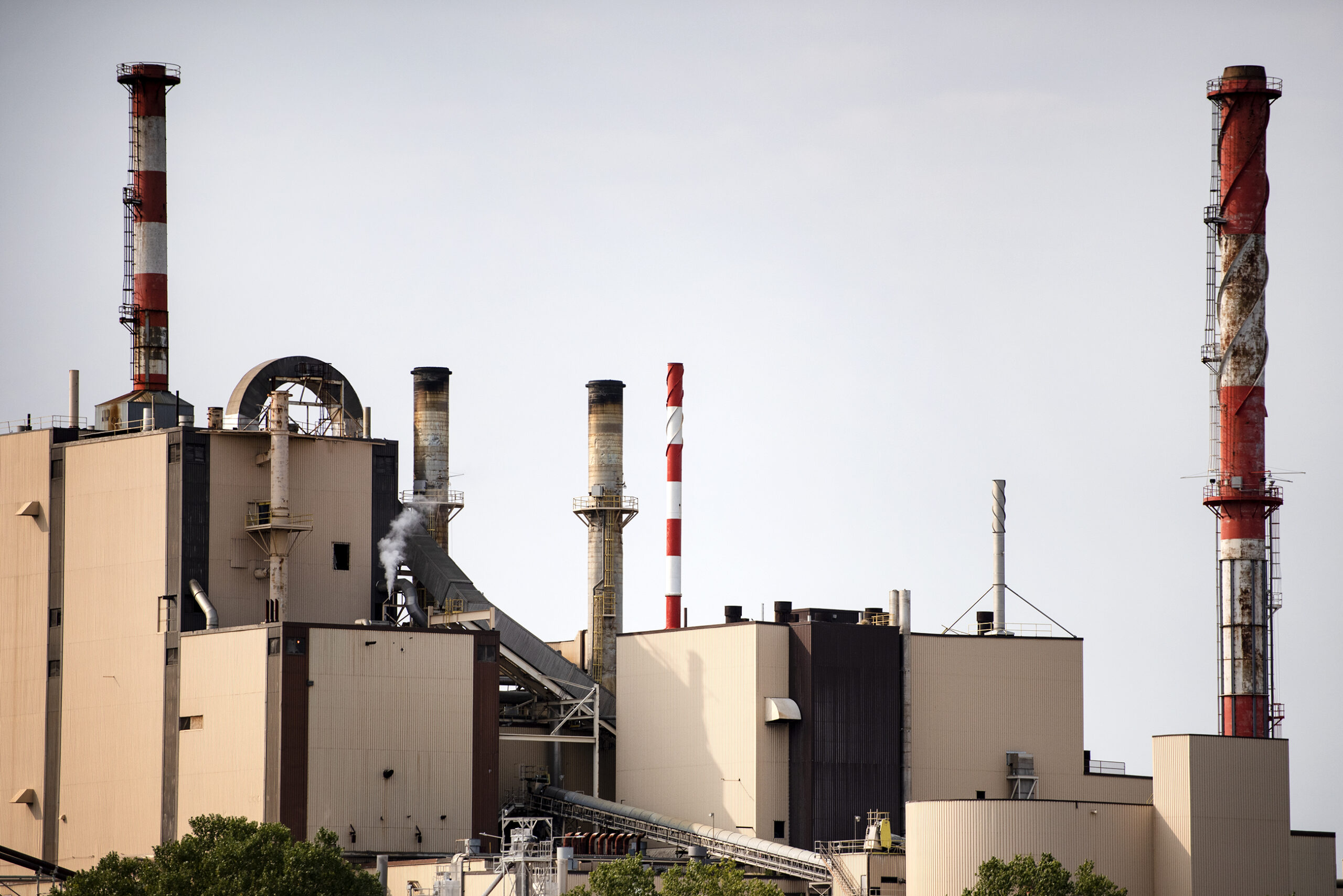
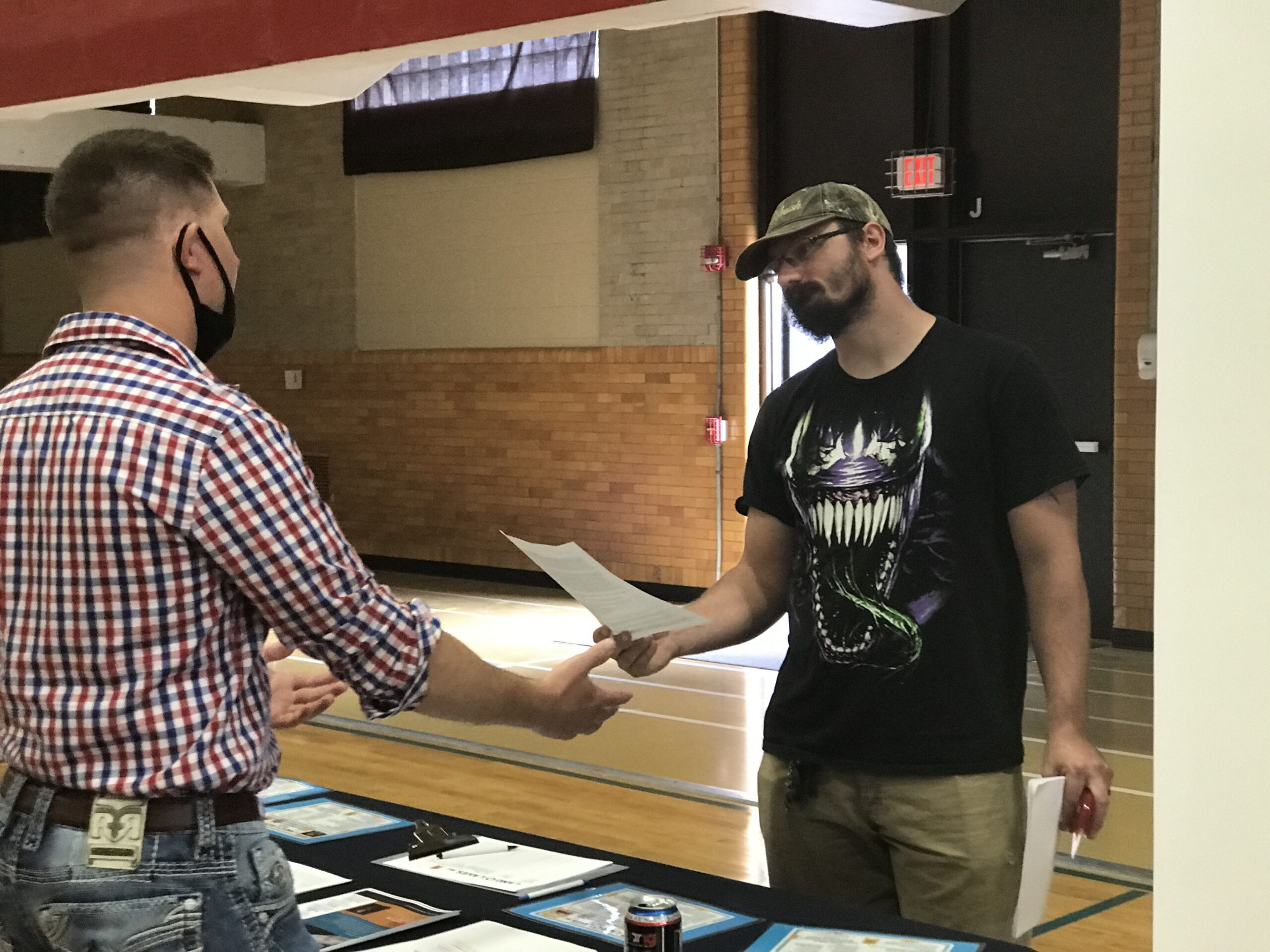
‘I Want To Stay Here’: Workers Have Job Prospects, Not All Nearby
The crowds were sparse at a two-day job fair held in early September in the gym of a recently closed junior high school building, but some workers were making their way through the tables.
A representative of a paper mill in Mosinee said that mill was hiring, as was a Wausau manufacturer of labels and packaging and a Land O’Lakes cheese plant in Spencer — all of them about an hour’s drive from Wisconsin Rapids. That commute, some former Verso employees said, would be doable, if not ideal.
The presence of more than 80 employers at the job fair is a sign that there are jobs out there for ex-Verso workers, said Angel Whitehead, president of the Heart of Wisconsin Chamber of Commerce.
“We would love to keep all 700-plus jobs here in the city of Wisconsin Rapids, but that’s not necessarily realistic,” Whitehead said. “Our goal is Wisconsin Rapids, Wood County, central Wisconsin and Wisconsin as a whole.”
John Uphoff, 32, was a filter plant operator at the mill. He stayed on longer than many of the workers, and was laid off in mid-August.
“It’s been pretty rough, and the outcome is very unsure for a lot of people in this county,” Uphoff said.
Uphoff is married, and has a 3-year-old son and a 10-year-old daughter. The family just bought a house in nearby Port Edwards.
“I want to stay here,” he said. “It’s a perfect house for my kid and my daughter to grow up in and live happily. I’m going to do whatever I can in this area to help this community grow.”
Paper mill employees are skilled workers, and experts say their job prospects are relatively good. In 2014, a study by the Wisconsin Institute for Public Policy and Service Research Partners surveyed hundreds of former mill workers who had lost their jobs in 2008 when Domtar closed its mill in Port Edwards, just 10 miles away from the Verso mill.
That study found that more than 90 percent of workers younger than 63 had gotten new jobs. Only 25 percent of them had moved to other paper mills, while 34 percent found other manufacturing work and 42 percent found work in other sectors, including agriculture or health care. The workers’ average job search took 21 weeks, less than the national average of 25 weeks in the same period.
But another finding of the study, said institute director Eric Giordano, is that workers who weren’t willing to relocate or commute were at a disadvantage. Even if they stayed in the Wisconsin Rapids area, their jobs often did not follow suit.
The direct economic losses for Wisconsin Rapids are likely to be in the hundreds of millions of dollars per year, leaders said. And the effects ripple out: trucking businesses, service businesses and restaurants all have relied on Verso for clients and customers.
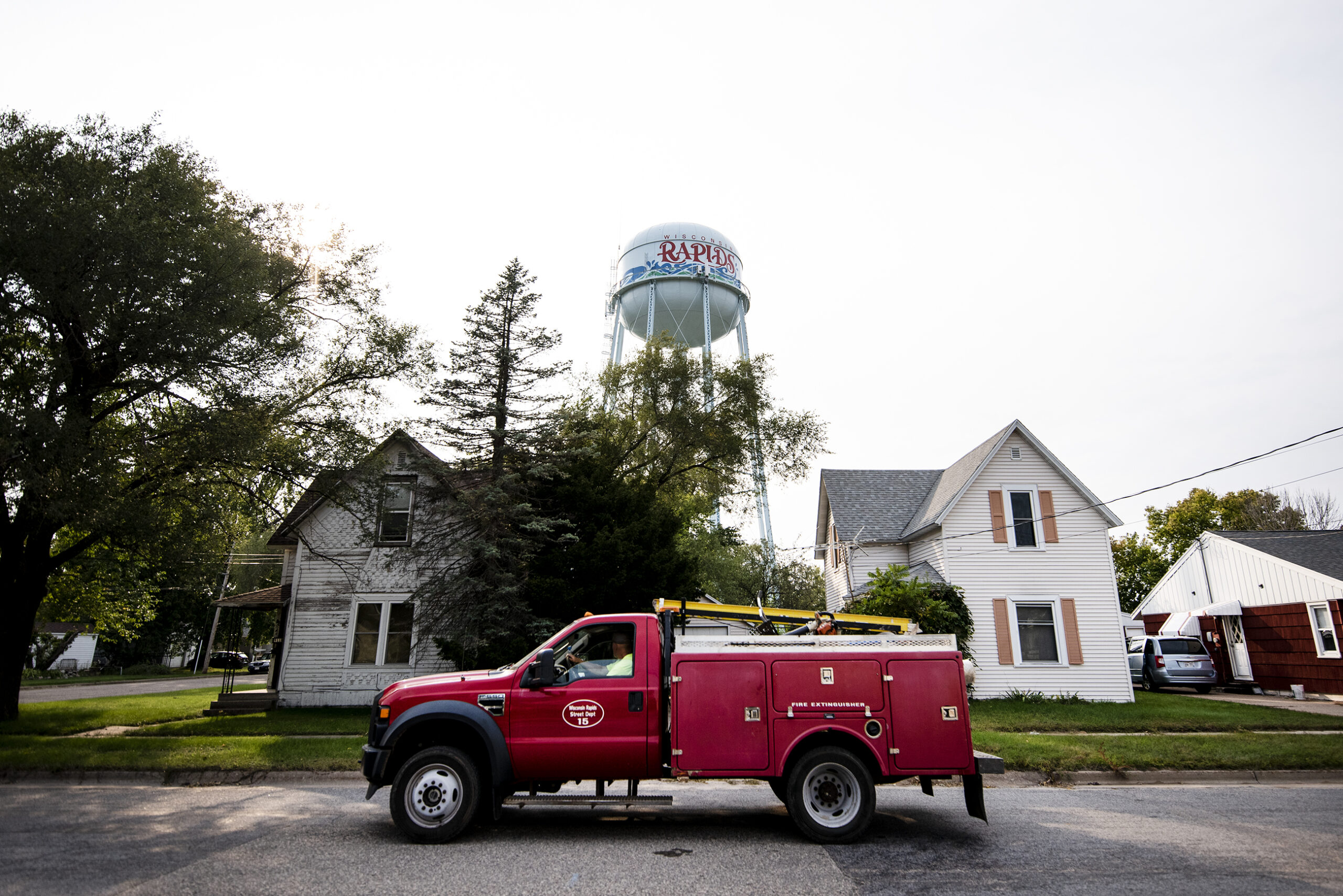
Wisconsin Rapids’ Biggest Employer, Before There Was A Wisconsin Rapids
The COVID-19 pandemic was the most immediate culprit in Verso’s decision to idle its plant, but the map of Wisconsin is dotted with closed paper mills. In Whiting, just 20 miles from Wisconsin Rapids, a mill closure in 2010 meant the loss of 360 jobs. The 2012 closure of Wausau Paper’s century-old mill in Brokaw was so devastating that it eventually led to the dissolution of that village.
The Wisconsin Rapids area itself was hit by a major mill closure in 2008, when some 500 workers lost their jobs as Domtar closed its mill in Port Edwards.
None of these mills employed as many people as Verso, and none were as central to their local economies when they closed down as Verso was to Wisconsin Rapids. But the Domtar closure triggered a years-long discussion in the city about how to diversify its economy. The closure of the Verso mill was simultaneously something no one could imagine happening, and something everyone worried about.
“The closure or a significant downsizing of that operation was absolutely, bar none, my biggest nightmare,” said Zach Vruwink, who was mayor of Wisconsin Rapids from 2012 until April of this year.
In April, Shane Blaser successfully unseated Vruwink from the mayor’s office. Blaser had been in the office for about eight weeks when the Verso announced it would idle the mill.
Wisconsin Rapids’ economy is not solely limited to paper. Hundreds of people work at Renaissance Learning, the learning software company headquartered there. There’s a Sonoco packaging plant and a McCain Foods facility in town, among plenty of others. In his eight years as mayor, Vruwink worked on riverfront developments and efforts to make the community welcoming for young professionals.
But Verso was always the biggest employer. Even now, Vruwink and others say they cannot imagine it remaining empty. To people in Wisconsin Rapids, that just doesn’t make sense. King said he spent the summer avoiding driving past the mill. The empty parking lots were too depressing.
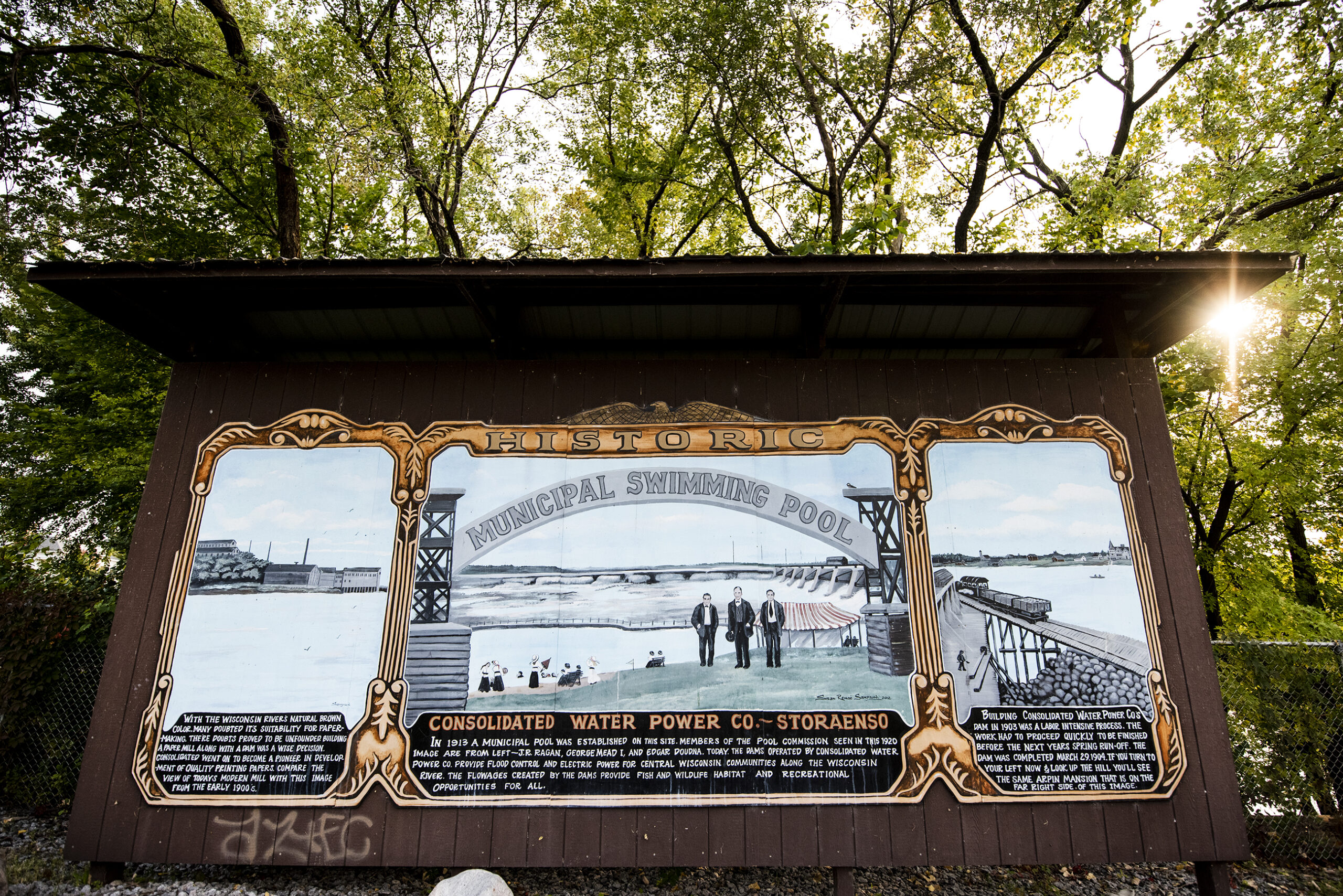
The mill and the paper industry have always been central to the area’s identity. The first paper mill in the area was established in 1888. Two years later, the first sheet of newsprint was created in Wisconsin Rapids, then called Grand Rapids.
In 1904, the Consolidated Water Power Company launched the world’s first electrically powered paper machines — the paper mill that would become the Verso mill. The city of Wisconsin Rapids itself wouldn’t exist until 1920 with the merger of Grand Rapids and Centralia, which sat on opposite sides of the Wisconsin River.
The mill would grow into a sprawling, 1,000-acre campus on the city’s north side, specializing in the glossy paper that makes magazines, including Life Magazine in its heyday. In 1992, its No. 16 Paper Machine was hailed as the engine of “a new generation of quality coated papers,” according to a plaque on the building that bears the names of Consolidated Papers chairman George Mead and former Gov. Tommy Thompson.
The inside of the mill was a city unto itself. There were workers running the machines, and moving and maintaining stocks. There were also dozens of support jobs in plumbing and electric work, maintenance, power-generation and wastewater treatment.
The mill had bridges and dams, with buses and trucks moving in and out, and in its warehouse, automated guided vehicles moved pallets without human drivers. People who worked there marveled at the size and complexity of the operation.
King, who’s spent decades in the industry, described a “local pride” to working at the mill.
“There is a brotherhood among folks who work in that industry, and only people who have worked in the industry probably know what I’m talking about — working shift work, being away from your family sometimes. The hot, sticky conditions that you’re in. The smelly conditions. All that,” he said.
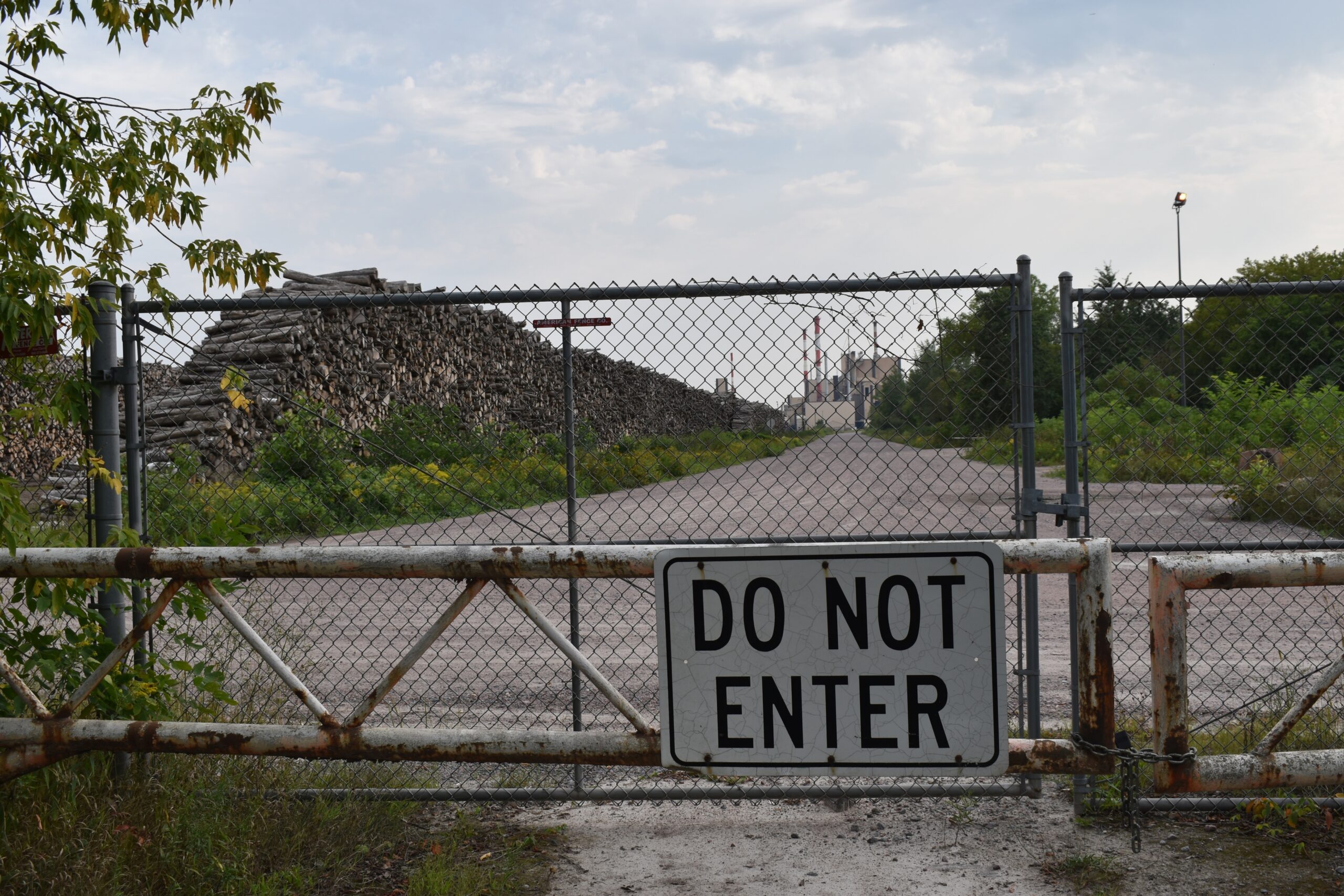
Outside, raw timber — the fuel used for the mill — is still stacked along a long, gravel road. Wisconsin produces about 2.8 million cords of wood each year, said Henry Schienebeck, executive director of the Great Lakes Timber Professionals. This single mill bought about 25 percent of that volume, or some 700,000 cords in total. (Some of the wood Verso bought came from outside of Wisconsin.)
“That’s a big consumer — the biggest in the (multistate) region,” Schienebeck said.
The mill had 500 suppliers, employing something like 2,000 logging trucks, Schienebeck said. For some Northwoods loggers, Verso was their only client.
The shutdown’s effect on the timber industry was immediate. Loggers didn’t get the two-months’ notice workers given to workers at the plant: Schienebeck said he learned of the news in an email at 8:20 a.m., about two hours after the one King and other workers received.
“By 9 o’clock, a lot of the loggers were getting calls and were told to stop delivering,” he said.
For years, loggers have been studying the idea of a cooperative agreement to buy and operate mills for themselves. Some Wisconsin mills have changed hands multiple times in past decade, often between different foreign-based multinational corporations. The co-op would ensure that Wisconsin businesses have “skin in the game.”
Of all the possibilities for the Wisconsin Rapids mill, this one is the most exciting for local leaders, and some workers who also like the idea of local ownership. Schienebeck said loggers are working with a U.S. Department of Agriculture cooperative specialist. But he acknowledges that there is some distance to go before the idea can become a reality. And for some workers, the wait will be too long.
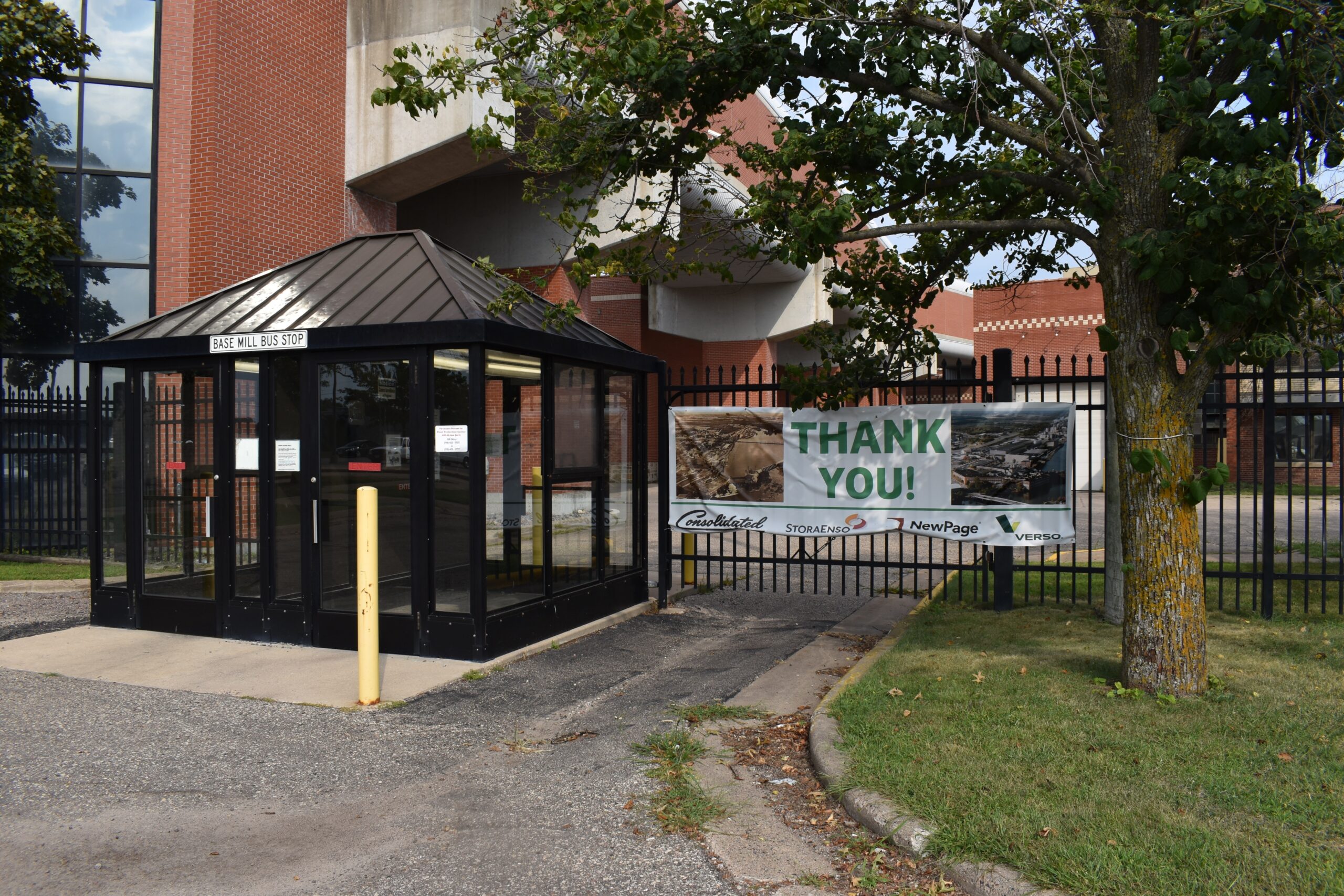
‘It Hits You Right In The Soul’
State Rep. Scott Krug, a Republican from Rome, is among the many people in the community with deep ties to the mill. He still has a retirement pin that Consolidated gave to his great-grandfather. On the day the company announced the mill would go idle, he wrote, “My heart hurts today like it never has before.”
“Everybody’s got an ancestral angst because of it,” Krug said in an interview in late July. “It hits you right in the soul. You can feel the pain of your ancestors looking at it, just shaking their heads, like, ‘What happened?’”
In June, Krug helped form a task force of local politicians and business leaders to work on saving the mill, finding a buyer or arranging a rescue of some sort. Finding a new future for a closed mill has happened before: Once-shuttered facilities in the Fox Valley and in Park Falls have reopened. The task force discussed the assets the Wisconsin Rapids mill possessed, and what would make it attractive to a buyer — the loggers’ co-op, for example, or another industry player.
Not all of the paper industry is in decline. The rise of shopping on Amazon has been good for the makers of the corrugated cardboard boxes. The onset of the pandemic led to a boom in home-toilet-paper sales, benefiting paper-makers in the Fox Valley.
The problem for Wisconsin Rapids is that the capital investments required to convert the mill to those products require hundreds of millions of dollars. Paper-making isn’t one thing or one process, and mills that specialize in different products have profound differences.
By the time of the job fair in September, state Sen. Patrick Testin, a Republican from Stevens Point, said the task force was mostly focused on how to help displaced workers. That doesn’t mean efforts to find a buyer are stalled, but even a successful effort could take months or years.
“I think there are some individuals who are trying to sit tight right now with the hopes that we’re going to have an Aaron Rodgers Hail-Mary pass in the fourth quarter and a new buyer within the next couple of months,” Testin said. “Other employees (are saying), ‘All right, it’s time to find a new chapter.’”
Every Monday in August, Brian King got together with other workers from his team who’d been laid off. They threw horseshoes in a park and talked about their next moves, trying to help one another with job connections, letters of recommendation and emotional support.

King knows he doesn’t want to work past 62, when he can start receiving Social Security benefits. That was the plan when he started at Verso, and it still is.
“Whatever job I take, I’m hoping to take it and ride off into the sunset,” King said in an interview in mid-August. “I’d like to work another eight years. I don’t want to go any longer than that. I’d like to retire and have some freedom to do what I want.”
King has a daughter in college, an adult son who works in agriculture. His youngest daughter is a junior in high school in Wisconsin Rapids. His wife works at a local job resource center for people with disabilities. For lots of reasons, he doesn’t want to move his family.
So when an out-of-state employer offered him a job, he considered it. But it was a hard decision. He’d have to stay in an apartment Monday through Friday, only coming home on weekends, potentially for years.
By September, he had taken that job, and made the first of his four-hour commutes to Escanaba, in Michigan’s Upper Peninsula. The mill he’s working for is also owned by Verso.
Being away from his home and his family all week is a sacrifice, he said. As for the job, so far, so good: He’s hoping the arrangement can last him and his family another eight years, until he’s able to retire.
Wisconsin Public Radio, © Copyright 2025, Board of Regents of the University of Wisconsin System and Wisconsin Educational Communications Board.

